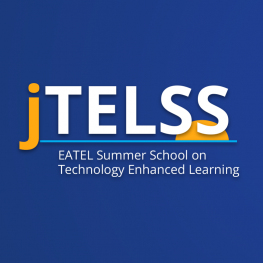Speakers
Maka Eradze
University of L’Aquila, ItalyStart
05/06/2023 - 10:30
End
05/06/2023 - 12:00
Designing for Educational Innovation
Monday 05/06 10:30-12:00h
Workshop Space B
Abstract
Creating educational innovation and tools, as well as developing theoretical insights is not a trivial task, especially when embarking on a PhD journey. The focus of the workshop is the design, research, theory and practice of educational innovation and tools through showcasing two approaches: Design-Based Research (DBR) and Research-Based Design (RDB). These are two similar yet distinct research approaches to evidence-informed educational design and development. While these two approaches to educational research and development share many similarities, they utilize educational design concepts and processes differently. The focus is either on artefact/product or theory generation as the final output.
During the workshop, participants will have the opportunity to engage in collaborative activities and discussions to gain a more comprehensive approach to educational research, design, and development that can advance our understanding of TEL environments, where the adoption of TEL innovations is problematic.
Needs Analysis
Designing sustainable educational innovation is one of the most important ontological, epistemological and methodological challenges for TEL. The same goes for the development and evaluation of theoretical insights and/or in PhD projects. At the same time, TEL innovation adoption is problematic. With this workshop, we propose think about balancing research (theory) and development (design)processes by analysing two approaches used in TEL – Design-Based Research and Research-based Design. The workshop will run for 90X2 minutes because the processes for group activities (development of an idea, designing a research plan and analysing use cases) based on d DRB and RDB needs more time.
Learning Objectives
By the end of the workshop, participants will be able to:
- Problematize and discuss the concept of innovation and the problems these innovations stems from
- Discuss the differences and similarities between DBR and RDB
- Understand how to balance between research and development
- Understand how to tackle TEL innovation adoption challenges
- Create a design research idea and create a research design
Pre-activities
None.
Session Description
- Introduction of the topic
- Discussing two case studies
- Presenting a task
- Group activities (1)
- Group activities (2)
- Presentation of results – pitching your idea


